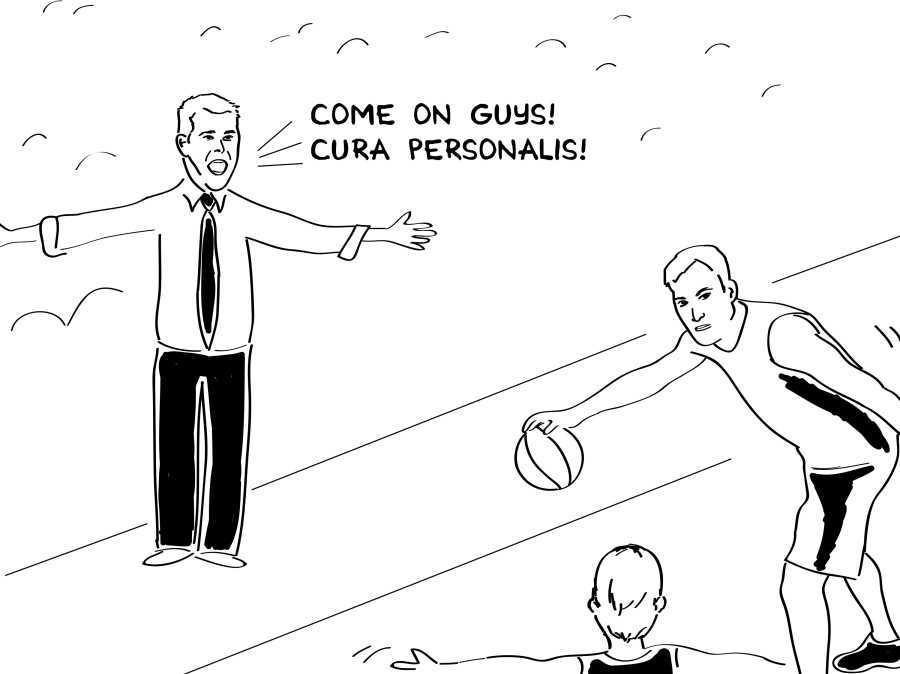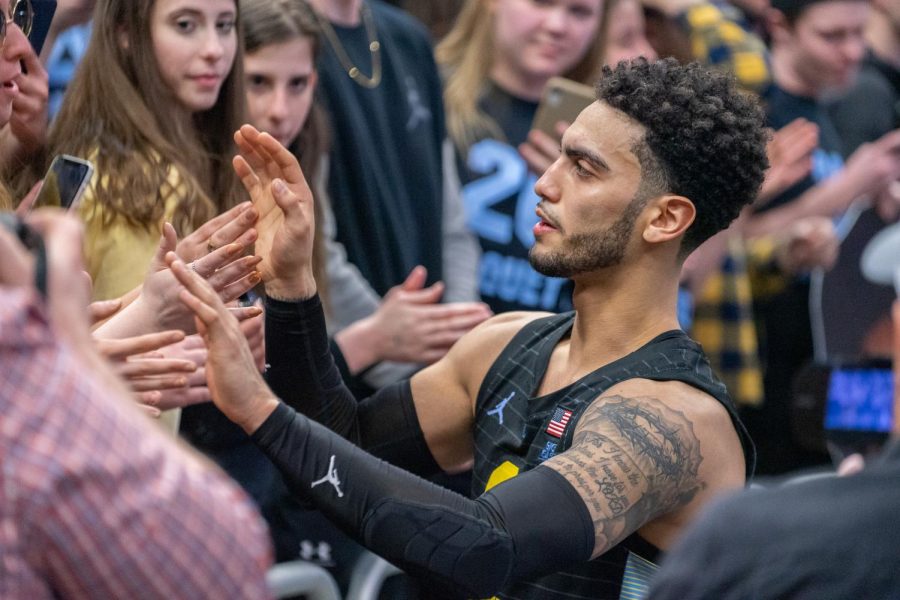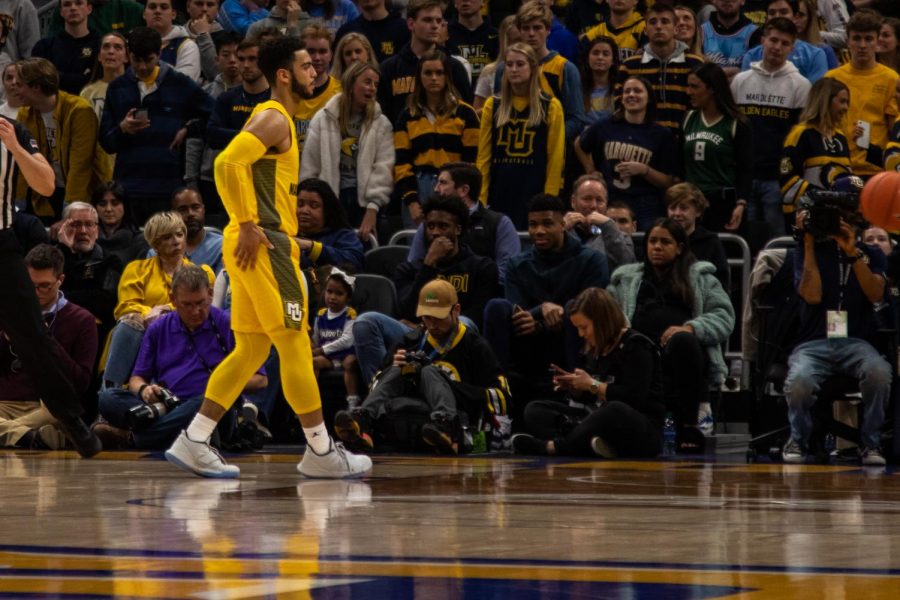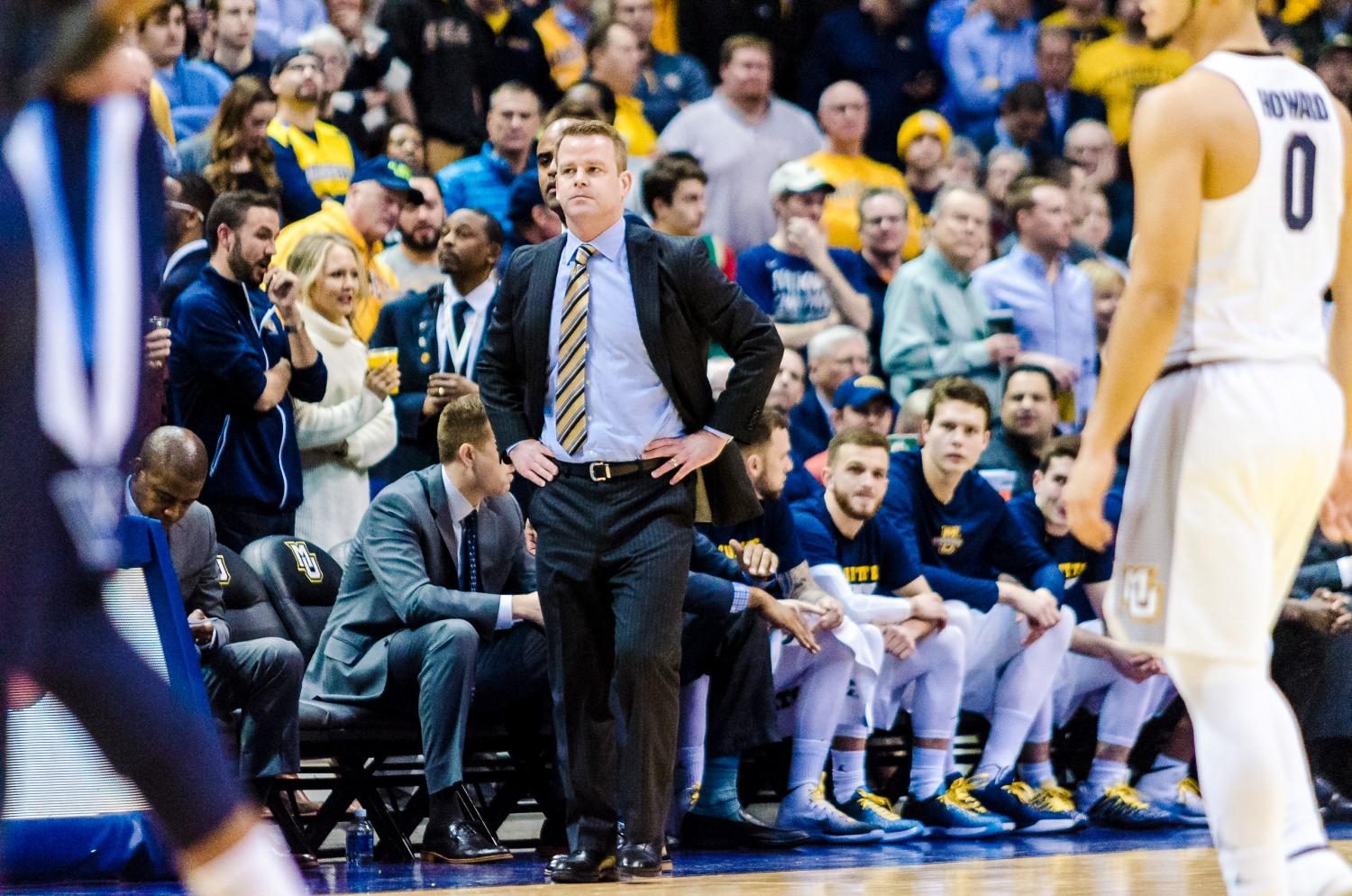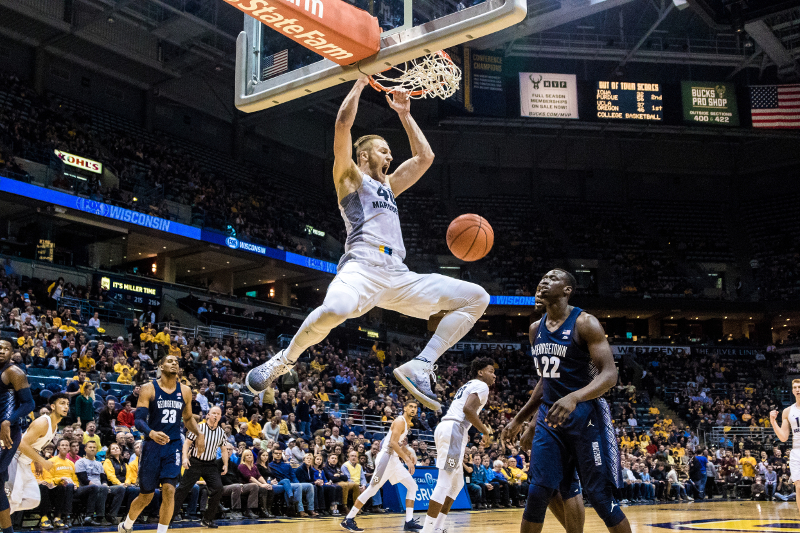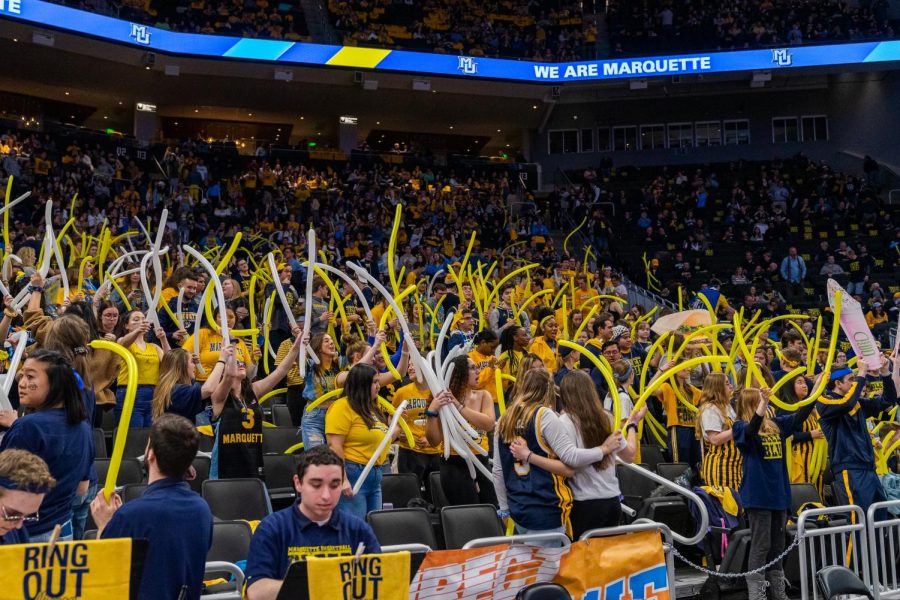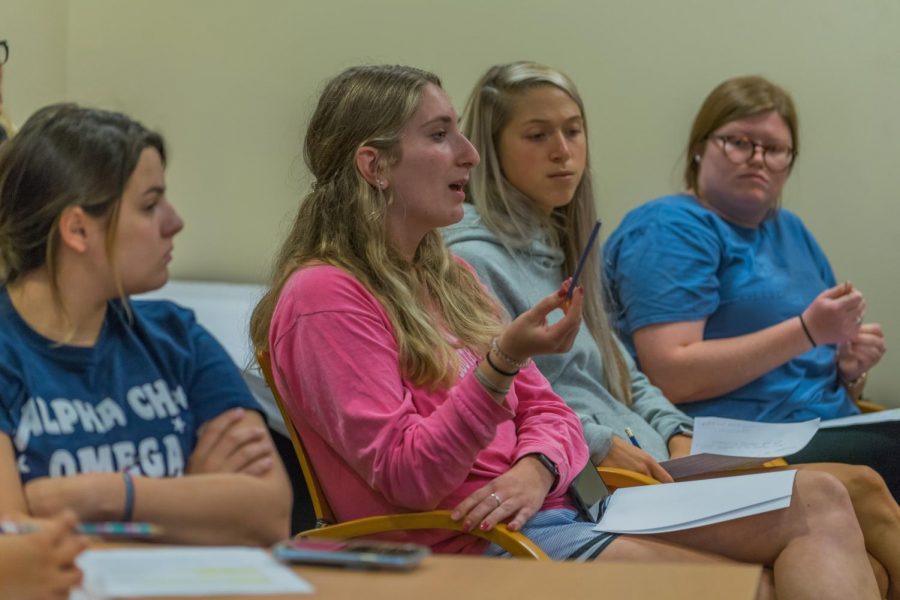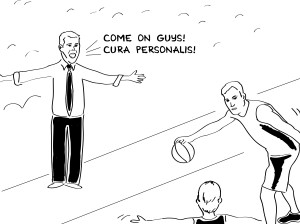
After his appointment as Marquette’s next president, Michael Lovell outlined some of his criteria for the next head coach of the men’s basketball team.
Among these, he said the university would seek a coach who embodied the university’s Jesuit values – one who would be a leader to his players both on and off the court and hold the players to a high standard of ethics and morality.
With his comments, Lovell set an important standard for Marquette coaches.
Men’s basketball is the most watched sport at Marquette – and also the most scrutinized. This makes Wojciechowski the new proverbial figurehead for Marquette athletics. The more closely he adheres to the philosophy that guides many students, faculty and staff on campus, the better.
Lovell’s criteria are especially pertinent considering the lack of discipline some men’s basketball players showed the past few seasons under former coach Buzz Williams. In 2011, Marquette guard Vander Blue was cited with assault and battery after an altercation with another student at 16th and Wells streets. A few months later, six players were reportedly ticketed at a nightclub in downtown Milwaukee for being underage, though the report didn’t come until three months later.
Williams was also the coach when four Marquette student athletes were accused in a case of sexual assault on campus in 2011. This prompted a federal investigation into the university to determine if Marquette violated the Clery Act, which provides guidelines for the reporting of sexual assault cases on college campuses.
The allegations in 2011 meant Marquette needed to actively amend its guidelines for reporting sexual assault cases – but the mending of the university’s image is still ongoing.
These incidents reflected poorly on the team and the university in the short term, but the lack of moral leadership allowing them to happen continues to put a strain on the community.
If Lovell and other Marquette officials chose Wojciechowski for high moral values in addition to his extensive coaching experience at Duke, then the team is on track to avoid these incidents in the future. The transgressions of the past few seasons should indicate to Wojciechowski the importance of enforcing team policy and setting a positive example.
Jesuit values set an appropriate benchmark for how such cases should be handled if they are to happen again. But coaches have more influence than this, especially at a university with a program as popular as men’s basketball. Wojciechowski has an opportunity to hold his players to a standard that not only rebuilds the face of Marquette athletics, but also prevents such problems from occurring again.
Lovell was right to look for strong values in a coach. His remarks do not necessarily mean Wojciechowski needs to adhere specifically to Jesuit values. Rather, Lovell stressed the importance of a sustainable value system entering back into Marquette sports.
A commitment to a concrete set of values is vital to Marquette athletics moving forward into a new era.
If hiring Wojciechowski has fulfilled Lovell’s search for a virtuous leader, then it is a big step in the right direction. As much as Marquette has an opportunity to mend its image with the new hire, Wojciechowski needs to be clear about his commitment to a set of values on par with the Jesuit traditions in his actions as much as his words. The university is installing new leadership in many areas this year, and these openings will continue to be an opportunity for getting university values back on track.

